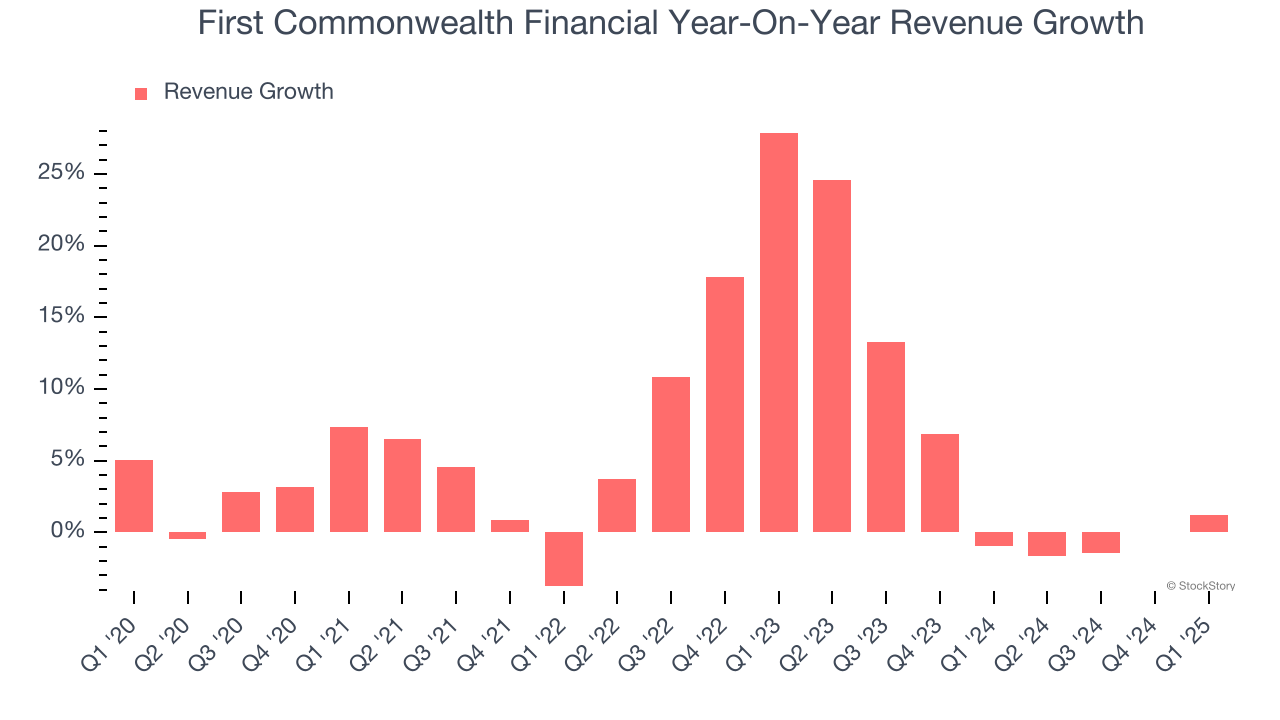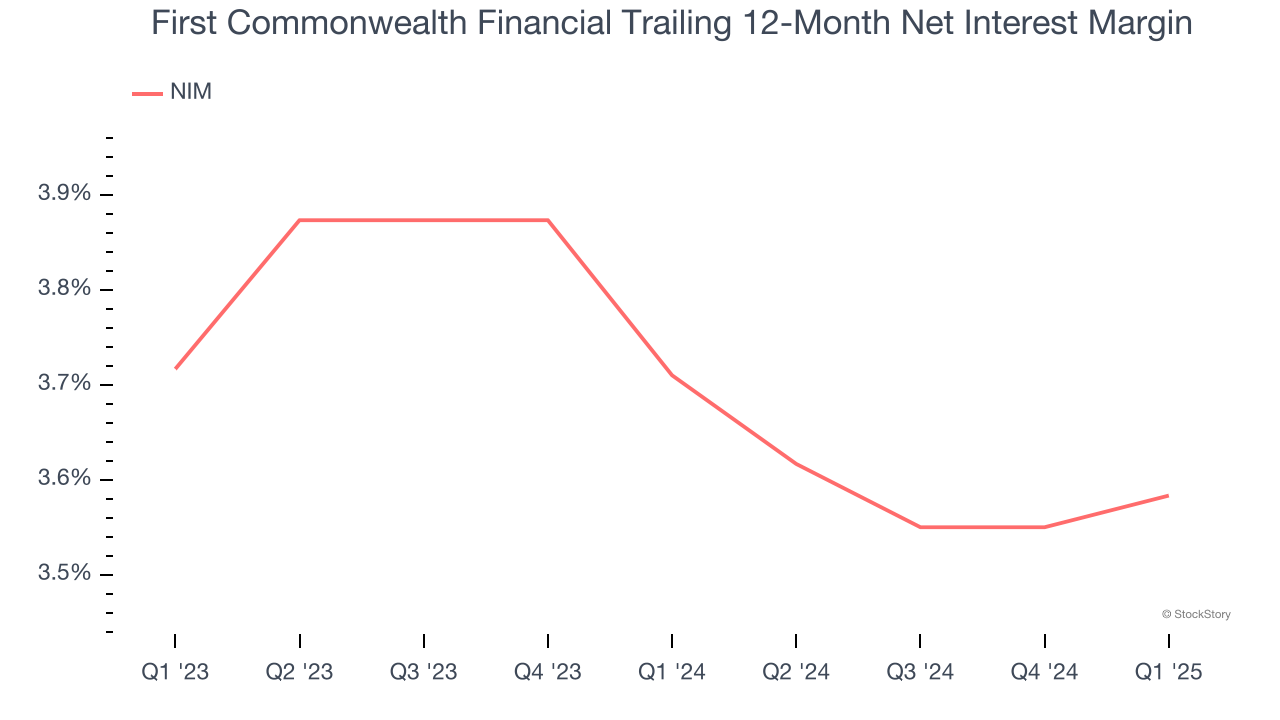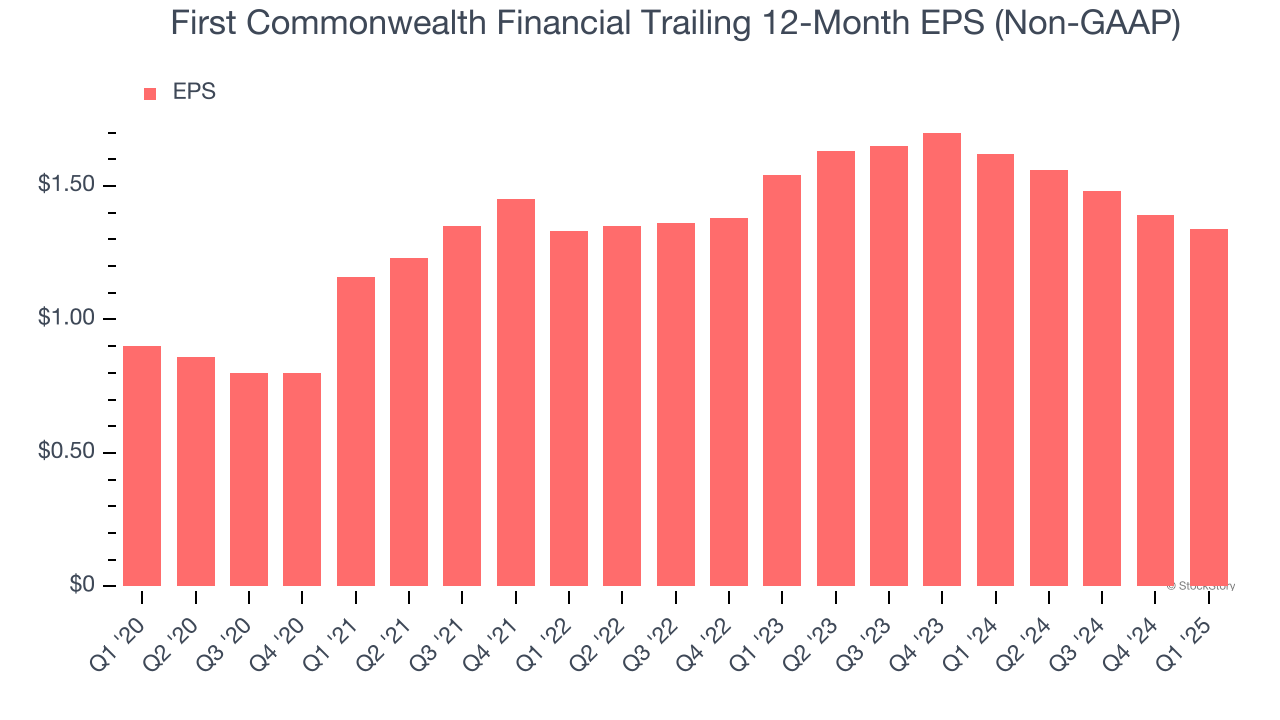
Over the last six months, First Commonwealth Financial’s shares have sunk to $15.30, producing a disappointing 9.4% loss - a stark contrast to the S&P 500’s 1.7% gain. This might have investors contemplating their next move.
Is there a buying opportunity in First Commonwealth Financial, or does it present a risk to your portfolio? Check out our in-depth research report to see what our analysts have to say, it’s free.
Why Is First Commonwealth Financial Not Exciting?
Despite the more favorable entry price, we don't have much confidence in First Commonwealth Financial. Here are three reasons why FCF doesn't excite us and a stock we'd rather own.
1. Lackluster Revenue Growth
Long-term growth is the most important, but within financials, a stretched historical view may miss recent interest rate changes and inflation readings. First Commonwealth Financial’s recent performance shows its demand has slowed as its annualized revenue growth of 4.8% over the last two years was below its five-year trend. 
2. Net Interest Margin Dropping
Revenue is a fine reference point for banks, but net interest income and margin are better indicators of business quality for banks because they’re balance sheet-driven businesses that leverage their assets to generate profits.
Over the past two years, First Commonwealth Financial’s net interest margin averaged 3.6%. However, its margin contracted by 13.3 basis points (100 basis points = 1 percentage point) over that period.
This decline was a headwind for its net interest income. While prevailing rates are a major determinant of net interest margin changes over time, the decline could mean First Commonwealth Financial either faced competition for loans and deposits or experienced a negative mix shift in its balance sheet composition.

3. EPS Took a Dip Over the Last Two Years
While long-term earnings trends give us the big picture, we also track EPS over a shorter period because it can provide insight into an emerging theme or development for the business.
Sadly for First Commonwealth Financial, its EPS declined by 6.7% annually over the last two years while its revenue grew by 4.8%. This tells us the company became less profitable on a per-share basis as it expanded.

Final Judgment
First Commonwealth Financial isn’t a terrible business, but it doesn’t pass our quality test. Following the recent decline, the stock trades at 1× forward P/B (or $15.30 per share). Investors with a higher risk tolerance might like the company, but we think the potential downside is too great. We're fairly confident there are better stocks to buy right now. We’d recommend looking at a fast-growing restaurant franchise with an A+ ranch dressing sauce.
Stocks We Like More Than First Commonwealth Financial
Market indices reached historic highs following Donald Trump’s presidential victory in November 2024, but the outlook for 2025 is clouded by new trade policies that could impact business confidence and growth.
While this has caused many investors to adopt a "fearful" wait-and-see approach, we’re leaning into our best ideas that can grow regardless of the political or macroeconomic climate. Take advantage of Mr. Market by checking out our Top 9 Market-Beating Stocks. This is a curated list of our High Quality stocks that have generated a market-beating return of 183% over the last five years (as of March 31st 2025).
Stocks that made our list in 2020 include now familiar names such as Nvidia (+1,545% between March 2020 and March 2025) as well as under-the-radar businesses like the once-micro-cap company Tecnoglass (+1,754% five-year return). Find your next big winner with StockStory today.






